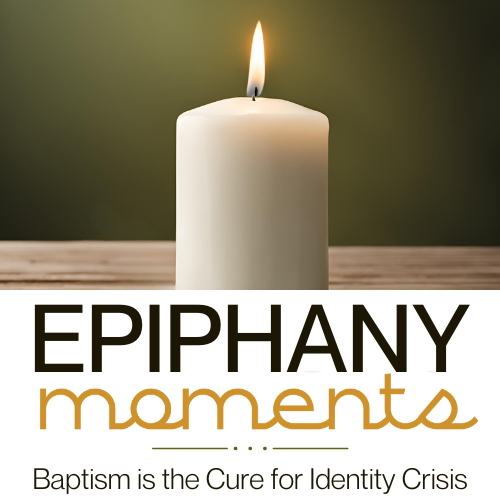Watch the livestream beginning at 10:30 a.m. on Sunday. After the livestream is finished, the video will be available to watch at any time.
Second Lesson: (NIV)
Gospel: Matthew 21:23-32 (NIV)
Music:
- Preschool: “God Is So Good”
- Hymn CW 5:00 CW 648:1,4,5 “Dearest Jesus, We Are Here”
- Psalm 25: “To You, O Lord, I Lift My Soul”
- Hymn CW 547:1,2,3,5 “At the Name of Jesus”
- Hymn CW 924:1,6 “Abide, O Dearest Jesus”
Pentecost 18 October 1, 2023
Matthew 21:28-32 Pastor Ryan Wolfe
“Which child of God are you?”
1) The one with empty words?
2) The one with repentant actions?
When I think of objections that people have made to the church when I’ve tried to invite others to worship, I think that perhaps the most often repeated criticism is that there are so many hypocrites here. Actions speak louder than words, and that’s perhaps doubly true when you’re talking about something as important as faith. If somebody tries to tell us one thing but does another we sniff them out pretty quickly. People aren’t just looking for truth in speech – they want to see truth in action.
As Jesus teaches with another story, another parable, we find today that God looks for action too. Of course, the confession a person makes about what they believe is critical for their salvation. What we believe is important, the most important. But as we confess the truth with our words, we better back it up with our actions. If we don’t, others will see us for the hypocrites we too often can be. And they’ll reject not just us, but our Savior too. Compare yourself to the two sons in this very simple parable and ask yourself, “Which child of God am I?” Am I the one with empty words or am I the one with repentant actions?
Jesus tells this parable on Tuesday of Holy Week. Two days earlier he had ridden into Jerusalem with crowds calling out his name and praising God. In the days that followed the Jewish teachers of the law and Pharisees and Sadducees came and questioned him over and over. They questioned his authority. They tried to trap him with questions that would either condemn him in the eyes of the government or in the eyes of the people. The account in our text is just one more example. In just three verses, the whole parable is complete. Jesus says, “There was a man who had two sons. He went to the first and said, ‘Son, go and work today in the vineyard.’ ‘I will not,’ he answered, but later he changed his mind and went. “Then the father went to the other son and said the same thing. He answered, ‘I will, sir,’ but he did not go.”
Every parent, teacher, or employer here recognizes the difference between the two sons. The father doesn’t treat them any differently. He makes the same request to both. He expects the same obedience from both. But that’s not what he gets.
Let’s look at the second son’s answer first. He answered, `I will, sir,’ but he did not go.” Jesus didn’t give a reason that the second son didn’t go. We are simply told he didn’t show up to do the work he had promised. Maybe he got busy. Had to clean the garage out or rake the leaves. Maybe the game was on. Whatever the reason, he just didn’t go. His intentions were good. His words were admirable. Did you notice, he even added that title of respect? “I will, sir.” But he doesn’t follow through. “What do you think,” Jesus asks the Pharisees, “do you think this son did the father’s will?
As Jesus is confronted again and again by the Pharisees the smart play would have been to cozy up to them, not to challenge them. By outward appearances, they were doing the Father’s will. In fact, they were so zealous to do the Father’s will that they added volumes and volumes of extra laws. They believed, and taught others, that if they kept all those laws they would surely be worthy in God’s sight and great in God’s kingdom. The Pharisees and teachers of the law loved nothing more than following the father’s will, at least outwardly.
But Jesus tells them this story to teach them that following God’s will isn’t about going through the motions – it’s about the heart behind it. The second son said all the right things and looked like the faithful one, but when it came time to put words into action, the heart wasn’t in it. The words proved empty.
Today we each have to ask just how much we let ourselves be like this second son. How often don’t we say the right thing before God but not really put our hearts into it? Think about worship today. Did you get up looking forward to church, recognizing the blessing of having time set aside just to be with God and his people? Did you get to church early so that you could be sure not to miss anything? So you could encourage the others here? Are you engaged and listening? Did you confess your sins sincerely, and find relief when you heard those sins forgiven? Or…is church something you want to get over so you can get to what you really want to do today? Did you slide into church just in time, or maybe even a little bit late? Did you greet your fellow church family on way in? Did you just say what you were supposed to and sit quietly until the service is over? Oof, we all have a little hypocrite in us, don’t we?
This story from Jesus forces us to look at our hearts, to look at our lives and our actions and understand that they’re all connected. Jesus’ parable warns us about being a child of empty words. Paul warned Titus in the letter that bears his name, “They claim to know God, but by their actions they deny him. They are detestable, disobedient and unfit for doing anything good.” Heaven help us from being that second son. To say we are Christian, but to it without only words is a tragic and dangerous living.
Now, of course, we realize as we look at the actions of people, we are only looking at the outside. We can’t see the heart, and so we will be careful about judging others. If you’re thinking right now about someone else and how far short they’re falling, stop that! Right now. This sermon isn’t about them. It’s about you. Each person is responsible first for themselves, and we know our own hearts. We know we often are the second son. The one who knows, but doesn’t do. The one who is called, but doesn’t answer. The hypocrite with sinful heart and empty words.
Maybe you’re already ahead of me thinking about the first son though. But pastor, you’re saying to yourself, are we not him also? And to that, I say yes, by God’s grace, we are him too. The first son initially rejected his father’s request. “No, I will not,” was his reply. But after a time he changed his mind and went and worked, just as his father had asked. Even the Pharisees had to admit that this was the son who did his father’s will. The repentant heart showed itself in faithful action.
And while we are still hypocrites in so many ways, we’re recovering hypocrites. Our response to God’s will often is like that first son. “No, God, I’m too busy. No, God, I’d rather do it this way. No, God, I’ve got my own priorities.” But God doesn’t leave it there. He calls us to faith, and that faith leads us to repentance. The path we were one was replaced by the path he sets for us. The fact you’re here today shows the truth of that. Have you ever been disappointed by a low-attendance service? I have been. But maybe we shouldn’t be. The fact is, none of us want to be here. Not by our sinful nature. Your pastor included. Sleep is nice. I’ve got projects to do at home on Saturdays and my TV tells me that Sundays are made for football.
But in a miracle of Biblical proportions, God’s Spirit moved in sinful hearts to bring every one of us here to him. And it started long before you dressed up for church and jumped in the car to get here. Do you remember what I said about the timing of Jesus’ parable here? Tuesday of holy week. Just three days after telling this story Jesus would let himself be crucified to pay the spiritual debt of every sinful son and daughter of mankind. To pay for the sins of those who first heard this story from Jesus, and those who just heard it for the first time. With that debt paid and guilt removed, Jesus would rise again three days after that on Easter to prove the payment had been made in full. The difference in the sons in Jesus’ parable wasn’t what the Father did for them – he went to them both. The difference is whether the sons recognized the Father’s authority and followed their own way or his. It’s a simple proposition with only two answers: Are you walking your own path of empty words, or following God’s path in repentant action?
Every one of us is a sinner, and that means every one of us has cause to stop what we’re doing and listen. To realize that sin, to turn from it, and go the opposite way. That’s the picture behind the word repentance itself. Think of a full “U-turn”. Brothers and sisters, recognize God’s grace and gift of faith allows that to be possible for you. You are forgiven by the perfect Son and a saved child of God already. Now choose to follow him. You know the kinds of work our Father has called us to do. To teach our children. To worship him. To encourage one another. To live our faith and share our Savior. If you’ve been saying “yes” but living “no” then hear again God’s forgiveness and start saying “yes.” No matter where your sinful blind spot is, no matter how often you’ve said no to God – he is still standing here inviting you to repent and work for him.
The sermon theme today asks which child of God you are. The fact is we are both. We are the hypocrite son that says “yes, Lord” but then ignores the Father’s will. And we must fight that nature in us every day with the powerful word of God and with prayer. But in fighting that selfish nature we find that we are the second son too. The repentant and faithful child of a Father who does not turn from us. Brothers and sisters, you are children of the heavenly Father. Know his love today, repent, and live. Amen.



